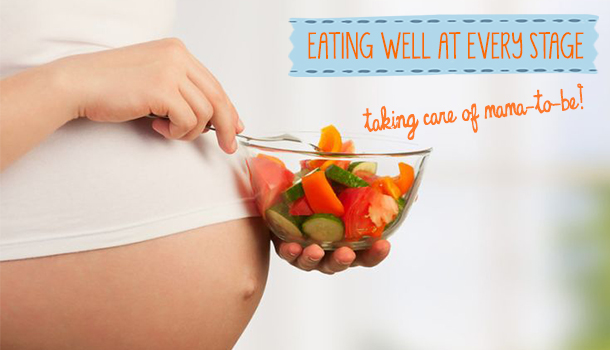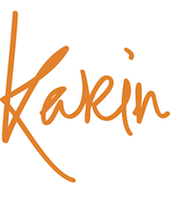
 Post Category - WellnessWellness - Post Category - HealthHealth
Post Category - WellnessWellness - Post Category - HealthHealthOne of the biggest myths out there (and ladies you know what I am talking about) is that pregnant women should eat for two. True or false? Big false on this one.
It’s true that during pregnancy a woman has to provide good nutrition for two individuals. The growing baby gets all its nourishment from its mother through the umbilical cord, so diet is very important. If the mother lacks any vitamins and nutrients her baby might lack them too. It’s all about quality and not about doubling up on the calories.
Even if you already consider yourself healthy there are some important things to keep in mind now that you are pregnant. As a basic rule, fresh is best, and getting more fruit and vegetables into your diet is one of the best ways to bump up your intake of vitamins and minerals.
Trimester 1
Some of the nutritional issues we aim to concentrate on during the first trimester should be:
- Maximizing maternal iron reserves – preventing anemia
- Increasing folic acid levels – reducing rate of neural tube defect
- Increasing calcium and vitamin D levels – for skeleton and teeth formation
- Increasing essential fatty acids needed to optimize brain, eye and spinal cord development in the baby
- Managing nausea
- Managing constipation
- Managing cravings and maintaining normal weight gain
Foods to include in our daily diet (which contain the above needed nutrients) would be: red meat (organic and grass fed if possible), green leafy vegetables, eggs (organic), seaweed, beetroot, mushrooms, avocado, carrots, bananas, dried prunes, oats, wild fatty fish (like salmon), raw, unsalted nuts and seeds, lentils and beans.
Supplements to consider taking: Pregnancy Multi vitamin (has to include folic acid), DHA omega 3 supplement, flaxseed oil, chia seeds, ginger (fresh in tea is my favourite but you can take in capsules) to combat nausea and probiotics.
Water intake should be increased to 3 litres a day.
Trimester 2
The second trimester is usually considered the smoothest trimester. We start feeling much better and begin to “glow”. Now that the nausea is over, it is a great chance to step up your nutritional uptake and make sure to nourish yourself and your baby.
Issues to consider during the second trimester include:
- Minimizing stress (avoiding stress hormones crossing the placenta) and reducing muscle cramps/spasms
- Improving your sleep (you will definetly need it when the newborn arrives)
- Our blood volume is increasing as the placenta reaches full size therefore we have an increased need for iron (sufficient iron will improve our immune function, reduce probability of post-partum haemorrhage and reduce the probability of post-natal depression)
- Stretch marks (’nuff said!)
- Lastly, nourish the placenta, enhance circulation, and increase antioxidant properties
Foods to make sure you include in your daily diet: dried figs and apricots (naturally dried), corn, almonds, brazil nuts, pumpkin seeds, sesame seeds, whole-cream organic milk, organic yogurt, organic yellow cheese, sardines, fortified cereals, asparagus, broccoli, spinach, garlic and onions.
Supplements to consider taking: wheat germ.
Trimester 3
As we prepare for the birth of our child we need to remember to not only nourish ourselves well, but also to rest and relax our body.
During this trimester the greatest amount of growth is occurring, so it is normal to feel more tired, heavier and uncomfortable.
Some of the issues we aim to concentrate on during the third trimester are:
- Fluid retention and swelling – this can be caused by protein deficiency so make sure to get enough lean protein in your daily diet. Gentle exercise, lymphatic massage and leg elevation may help you. In terms of foods, opt for diuretic foods like celery and asparagus.
- Difficulty sleeping – some say that this is the body’s natural way in preparing you for the sleep depravation that you are about to encounter…. What can you do? Try eating foods that are high in tryptophan before bed time like turkey, fish, beef, cottage cheese, eggs, pumpkin, whole grains, seaweed, potatoes, bananas, cabbage, lentils and figs.
Good night snacks include; banana and yogurt, tahini on crackers and camomile tea.
- Varicose Veins/ Haemorrhoids – A high fibre diet is the best treatment… psyllium husks, water, plenty of fruit and vegetables are the answer.
- Preparation for birth – an old (but much used recipe) for preparing the uterus for birth is raspberry leaf tea. Studies have shown that drinking the tea during the last weeks of pregnancy may shorten the second stage of labour. Please consult your physician before taking this supplement.
Foods to Avoid during pregnancy
- Foods that may contain the bacteria Listeria: soft cheeses, uncooked ‘deli’ style meats, raw meat or fish (sushi) and un-pasteurised milk and milk products.
- Foods high in mercury: raw fish and predatory fish that are high in mercury should be avoided. These include shark, swordfish, tuna and barramundi.
- Alcohol and caffeine should be avoided.
Karin G. Reiter is a medical nutritionist, wife, mama and business owner of Nutritious N’ Delicious who specializes in nutritional, health and life-style education. Karin has a passion for nutrition and the power of food – especially as it pertains to disease prevention. Karin is a vegetarian who lives, breaths, cooks, writes and talks about healthy food and how it can make your life so much better. You can also check out her Nutritious N’ Delicious blog.






 View All
View All





 View All
View All









 View All
View All










